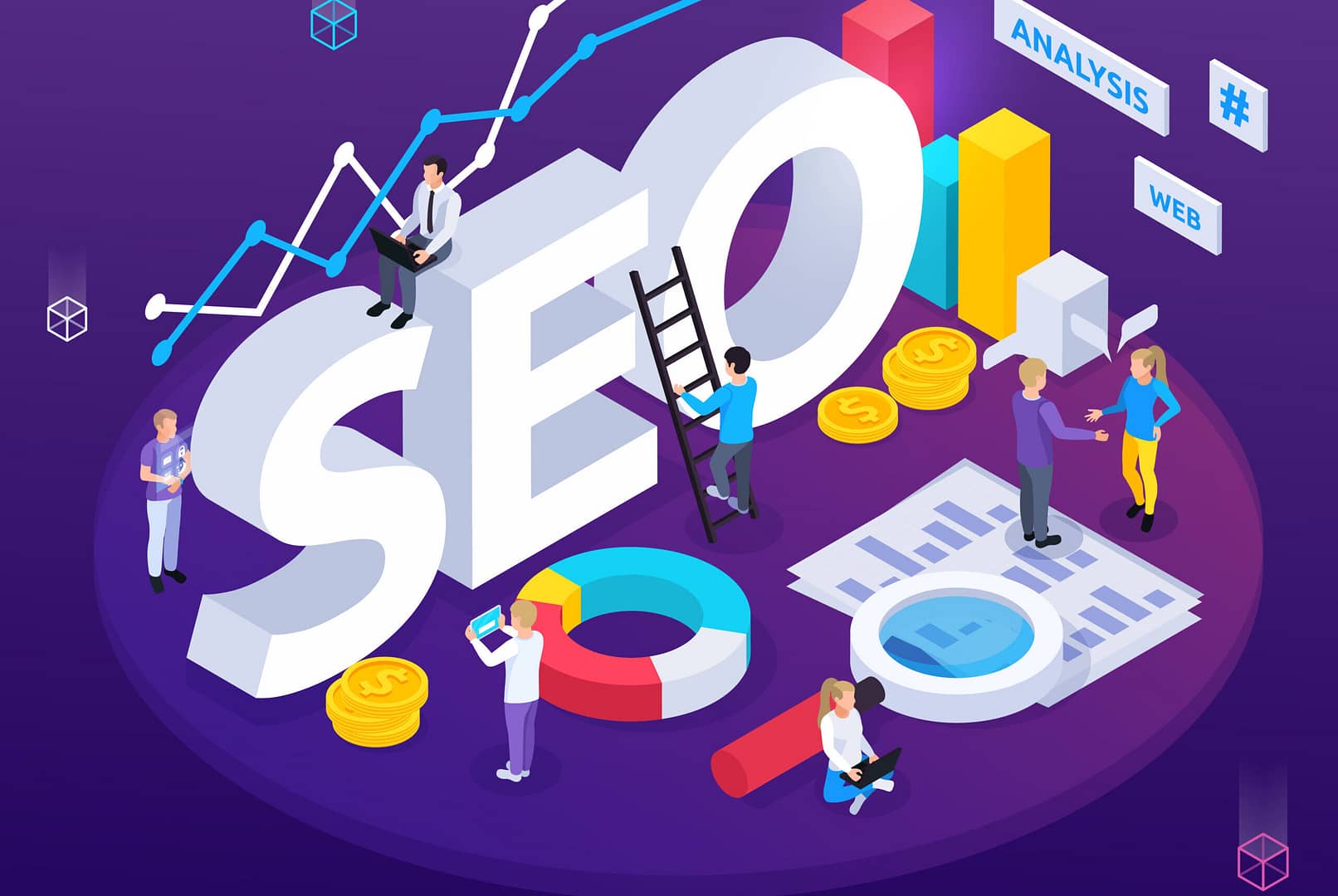
Blog Articles
Unlock Your Website’s Potential with Effective SEO Strategies
Table of Contents
Search engine optimization (SEO) is the key to unlocking your website’s potential. By optimizing your website and content for higher rankings in search engine results, you can increase visibility, reach more customers, and ultimately boost sales. In today’s digital age, having an effective SEO strategy is essential for staying competitive and maximizing your online presence.

When it comes to SEO, there are various strategies and techniques that can help your website stand out from the crowd. From conducting thorough keyword research to optimizing your content and building high-quality backlinks, each step plays a vital role in improving your website’s visibility and attracting targeted organic traffic.
In this article, we will explore the fundamentals of SEO, its importance, and provide actionable tips to supercharge your SEO game. Additionally, we will discuss monitoring your SEO progress, advanced techniques, the value of hiring an SEO agency, the importance of SEO services, and the available resources to learn and enhance your SEO skills.
Key Takeaways:
- SEO is essential for maximizing your website’s potential and increasing online visibility.
- Optimizing your website and content involves keyword research, content optimization, and building backlinks.
- SEO helps businesses attract organic traffic, boost conversions, and save money on paid advertising.
- Monitoring your SEO progress is crucial to understand what’s working and make necessary adjustments.
- Advanced SEO techniques such as local SEO and optimizing for voice search can further enhance your visibility.
What is SEO?
SEO, or search engine optimization, is a crucial practice for improving your website’s visibility and increasing organic traffic. It involves optimizing various elements of your website and content to rank higher in search engine results pages (SERPs). By understanding how search engines work and what users are searching for, you can tailor your website to meet their needs and improve its chances of being found.
The Benefits of SEO
SEO services offer a range of advantages for businesses seeking to establish a robust online presence. By optimizing website content and structure, SEO enhances visibility on search engines, driving increased organic traffic. This not only boosts credibility and trust but also provides a cost-effective means of marketing. With the ability to target specific audiences and adapt to market changes, SEO services empower businesses to stay competitive, measure results, and achieve long-term success in the digital landscape.

Why is SEO Important?
Search Engine Optimization (SEO) is crucial for several reasons, playing a pivotal role in the success of online businesses and digital marketing efforts. Here are some key reasons why SEO is important:
1. Increased Visibility and Traffic
SEO helps improve the visibility of a website on search engine results pages (SERPs). When your website ranks higher for relevant keywords, it is more likely to be seen by users searching for products, services, or information related to your business.
2. Credibility and Trust
Websites that appear at the top of search results are often perceived as more trustworthy and credible by users. SEO helps establish your website as an authoritative source in your industry, building trust with your audience.
3. Better User Experience
SEO involves optimizing various aspects of a website, including its structure, content, and design. This optimization not only helps search engines understand your site better but also enhances the overall user experience. A well-optimized site is likely to load faster, be more mobile-friendly, and provide valuable content to users.
4. Cost-Effective Marketing
Compared to traditional advertising methods, SEO is a cost-effective strategy for long-term success. While paid advertising can generate immediate results, SEO efforts continue to pay off over time, providing a sustainable and organic way to attract traffic to your site.
5. Targeted Traffic
SEO allows you to target specific keywords and phrases that are relevant to your business. This means that the traffic coming to your site is more likely to be interested in your products or services, increasing the chances of conversion.
6. Insights into Customer Behavior
SEO tools and analytics provide valuable insights into customer behavior, allowing you to understand how users interact with your website. This data can be used to make informed decisions about your digital marketing strategy and improve the overall performance of your site.
7. Competitive Advantage
In competitive markets, SEO can be a game-changer. If your competitors are investing in SEO and you are not, you may find your business falling behind. On the other hand, effective SEO strategies can help you outrank competitors and capture a larger share of the online market.
Three Tips to Supercharge Your SEO Game
When it comes to optimizing your website for search engines, implementing effective SEO strategies can make all the difference. Here are three tips to supercharge your SEO game and ensure that your website ranks higher in search engine results:
1. Create High-Quality, Relevant Content
- Content is a cornerstone of effective SEO. Craft high-quality, informative, and engaging content that addresses the needs and interests of your target audience.
- Conduct thorough keyword research to identify relevant terms and phrases related to your industry. Integrate these keywords naturally into your content, including in titles, headings, and throughout the body.
- Aim for content that provides value and answers the questions your audience may have. This not only helps with SEO but also encourages user engagement and increases the likelihood of social sharing and backlinks.
2. Optimize for Mobile and User Experience
- With the increasing use of mobile devices, Google prioritizes mobile-friendly websites in its rankings. Ensure that your website is optimized for mobile devices to provide a seamless experience for users on smartphones and tablets.
- Improve overall user experience by optimizing website speed, navigation, and accessibility. A fast-loading, user-friendly site is more likely to retain visitors and receive positive signals from search engines.
- Implement a responsive design that adapts to various screen sizes, ensuring a consistent and enjoyable experience across different devices.
3. Build Quality Backlinks
- Backlinks (links from other websites to yours) are a critical aspect of SEO. Focus on building high-quality, authoritative backlinks from reputable sources in your industry.
- Develop a backlink strategy that includes outreach to relevant websites, guest posting, and participation in industry forums and communities. Building relationships with influencers and other businesses in your niche can also lead to valuable backlinks.
- Monitor your backlink profile regularly to identify and disavow any low-quality or spammy links that may negatively impact your SEO.
Remember that SEO is an ongoing process, and staying informed about industry trends and search engine algorithm updates is essential. Regularly audit and update your SEO strategies to adapt to changes in the digital landscape and ensure that your website continues to perform well in search engine rankings.

Monitoring and Progress
Keeping track of your SEO progress is crucial to understanding the effectiveness of your strategies and making necessary adjustments. By monitoring your website’s performance, you can gain valuable insights into how your optimization efforts are impacting your online visibility and organic traffic. Two essential tools for monitoring SEO are Google Analytics and Google Search Console.

Google Analytics
Google Analytics provides detailed data on your website’s traffic, user behavior, and conversions. By integrating Google Analytics with your website, you can access key metrics such as the number of visitors, their geographic location, average session duration, bounce rate, and more. This information can help you identify which pages perform well, where visitors are exiting your site, and the effectiveness of your SEO campaigns.
Google Search Console
Google Search Console allows you to track your website’s rankings for specific keywords and identify any issues that may be affecting your search visibility. It provides valuable data on impressions, clicks, average position, and click-through rates (CTRs) for your web pages. With this information, you can analyze your keyword performance, optimize meta tags and descriptions, and troubleshoot any indexing or crawling errors.
By regularly monitoring your SEO progress using these tools, you can measure the impact of your optimization efforts, identify areas for improvement, and stay on top of the ever-changing search landscape. Remember, SEO is an ongoing process, and continuous monitoring is essential to maintaining and improving your website’s online presence.
Advanced SEO Techniques
Advanced SEO techniques go beyond the basics and involve more sophisticated strategies to optimize your website for search engines. Here are some advanced SEO techniques to consider:
1. Schema Markup
Implement schema markup to provide search engines with additional information about the content on your site. This can enhance the way your pages appear in search results by including rich snippets, such as reviews, ratings, and other structured data.
2. Voice Search Optimization
With the rise of voice-activated devices and virtual assistants, optimizing for voice search is becoming crucial. Focus on natural language and long-tail keywords that people are likely to use in voice searches. Consider creating FAQ pages to address common voice search queries.
3. User Intent Optimization
Understand and optimize for user intent rather than just keywords. Search engines are increasingly focused on delivering results that match user intent. Create content that not only incorporates target keywords but also addresses the underlying questions or concerns your audience may have.
4. Advanced Keyword Research
Go beyond basic keyword research tools and leverage more advanced techniques. Use competitor analysis, natural language processing tools, and customer surveys to uncover new keyword opportunities and understand the language your audience uses.
5. Page Speed Optimization
Page speed is a critical factor in both user experience and SEO. Utilize advanced techniques such as browser caching, image optimization, and content delivery networks (CDNs) to ensure your pages load quickly on all devices.
6. Video SEO
Optimize your video content for search engines by using descriptive titles, detailed video descriptions, and relevant tags. Create a video sitemap and host videos on platforms that support video SEO. Transcribe your videos to provide text content for search engines to crawl.
7. Local SEO Strategies
For businesses with a local presence, advanced local SEO strategies are crucial. This includes optimizing your Google My Business profile, earning positive local reviews, and creating location-specific content.
8. Technical SEO Audits
Conduct regular technical SEO audits to identify and fix issues that may impact your site’s performance. This includes checking for crawl errors, optimizing meta tags, improving site architecture, and ensuring proper implementation of redirects.

Implementing these advanced SEO techniques requires a strategic and data-driven approach. Regularly analyze the performance of your strategies, stay informed about industry changes, and be willing to adapt your approach to stay ahead in the ever-evolving landscape of search engine optimization.
The Benefits of SEO Services
SEO services offer a range of advantages for businesses seeking to establish a robust online presence. By optimizing website content and structure, SEO enhances visibility on search engines, driving increased organic traffic. This not only boosts credibility and trust but also provides a cost-effective means of marketing. With the ability to target specific audiences and adapt to market changes, SEO services empower businesses to stay competitive, measure results, and achieve long-term success in the digital landscape.
Conclusion
Unlocking your website’s true potential requires the implementation of effective SEO strategies. The world of digital marketing is dynamic and competitive, and SEO stands as the cornerstone for achieving online success. By optimizing your website to meet the ever-evolving criteria of search engines, you not only enhance visibility but also improve user experience, credibility, and trust. The benefits extend beyond just increased traffic, providing a cost-effective and targeted approach to reaching your desired audience. Embracing SEO is not merely a trend but a crucial investment in the longevity and competitiveness of your online presence. So, take the step to unlock your website’s potential today, and let the power of effective SEO strategies propel your digital success.
Also Check Out : Our React and SEO blog.

Get a Fast Estimate on Your Software Development Project
We are committed to delivering high-quality IT solutions tailored to meet the unique needs of our clients. As part of our commitment to transparency and excellence, we provide detailed project estimations to help our clients understand the scope, timeline, and budget associated with their IT initiatives.
Related FAQs
SEO stands for Search Engine Optimization. It’s a set of strategies and techniques aimed at improving the visibility and ranking of a website on search engine results pages (SERPs).
SEO is essential for increasing organic (non-paid) traffic to your website. It helps your site rank higher in search engine results, making it more visible to users looking for products, services, or information related to your business.
Search engines use complex algorithms to evaluate and rank websites based on various factors. These factors include relevance of content, quality of backlinks, user experience, mobile-friendliness, page speed, and many others.
On-page SEO involves optimizing individual web pages to improve their search engine rankings. This includes optimizing content, meta tags, headers, images, and other elements to make them more relevant to search queries.
Off-page SEO focuses on activities outside your website to improve its online reputation. This includes building high-quality backlinks, social media marketing, and other external factors that contribute to your site’s authority.
Keywords are specific terms or phrases that users type into search engines. In SEO, identifying and strategically using relevant keywords in your content helps search engines understand the topic and purpose of your pages.
Backlinks are links from other websites to yours. Search engines see quality backlinks as a sign of trust and authority. Building high-quality backlinks is a crucial off-page SEO strategy.
SEO is a long-term strategy, and the time it takes to see results can vary. Generally, significant improvements may take several months, but it depends on factors like competition, industry, and the effectiveness of your SEO efforts.
SEO tools help analyze and optimize your website. Popular tools include Google Analytics, Google Search Console, SEMrush, Moz, and Ahrefs. The choice depends on your specific needs and preferences.
Related Blog Posts





